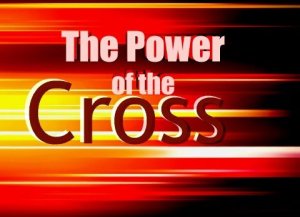The Purpose of Signs and Wonders in the New Testament: What Terms for Miraculous Power Denote and Their Relationship to the Gospel, Part 2, by Gary S. Greig

The Power of the Cross: The Biblical Place of Healing and Gift-Based Ministry in Proclaiming the Gospel
How the New Testament describes the supernatural can tell us a great deal about how we should see the miraculous.
Continued from Part 1 appearing in the Winter 2007 issue
III. Signs, Wonders, and Miracles Are Intended to Encourage Belief and Deepen Faith in Christ
It is true that “signs do not in themselves create faith in the hearts of observers and can even harden hearts,”41 as in the case of the Pharisees. F. F. Bruce noted this as well:
What about the signs he [Jesus] actually performed? Why were they not sufficient to convince his questioners? … If the restoration of bodily and mental health could be dismissed as a work of Satan, no number of healing acts would have established the divine authority by which they were performed…While the healing miracles did serve as signs of the kingdom of God to those who had eyes to see, they did not compel belief in those who were prejudiced in the opposite direction.42
But Scripture also shows that one function of signs, wonders, and miracles in the ministry of Jesus and the Early Church was to awaken and encourage faith in the gospel being preached. Why else would the Early Church have prayed prayers like the following, asking God for signs and wonders of healing to accompany its evangelism?
Acts 4:29-30—“Now, Lord, consider their threats and enable your servants to speak your word with great boldness. Stretch out your hand to heal and perform miraculous signs and wonders through the name of your holy servant Jesus.” God obviously granted such requests in the Early Church (e.g., Acts 5:12-16; 6:8; 8:4-8, 12-13, 26-39; 9:17-18, 32-42; etc.).
Jesus more than once challenged his listeners to believe His word on the basis of His miraculous works:
John 10:37-38—“Do not believe me unless I do the miraculous works (ta erga43) of my Father. But if I do them, even though you do not believe me, believe the miraculous works (tois ergois), that you may know and understand that the Father is in me, and I in the Father.”
John 14:11—“Believe me when I say that I am in the Father and the Father is in me; or at least believe on the evidence of the miraculous works themselves (dia ta erga auta).”
Mark 2:10—“‘But that you may know that the Son of Man has authority on earth to forgive sins…’ He said to the paralytic, ‘I tell you, get up, take your mat and go home.’” In his Gospel, John calls all of Jesus’ works of miraculous healing “signs” (sēmeia; Jn. 4:54; 6:2; 9:16: 12:17-18)—e.g., Jn. 6:2, “They saw the miraculous signs he had performed on the sick.”44 The miraculous healings of Jesus are also called “works” (erga) in John’s Gospel.45 Jesus provided abundant “signs” of miraculous healing to those who were open and seeking God, as every one of the Gospel accounts show. John then said of the signs, “These are written that you may believe that Jesus is the Christ, the Son of God” (Jn. 20:31).
In His condemnation of Korazin and Bethsaida’s lack of repentance and faith, Jesus indicates that His miraculous works were intended to produce repentance and faith in Him (Mat. 11:21; and Lk. 10:13):
Matthew 11:21—“Woe to you, Korazin! Woe to you, Bethsaida! If the miracles that were performed in you had been performed in Tyre and Sidon, they would have repented long ago in sackcloth and ashes.” Paul expected to proclaim the gospel “in the power of signs and wonders through the power of the Spirit” (Rom. 15:18-19; I Cor. 1:6-7; 2:4-5; II Cor. 12:12; I Thes. 1:5), and he expected God to continue to distribute spiritual gifts and work miracles among the churches to confirm the gospel and build up and encourage the church (Rom. 12:6-8; I Cor. 1:7; 12:1-14:40; Gal. 3:5; Eph. 4:7-13; I Thes. 5:19-22; I Tim. 4:14; II Tim. 1:6-7). Paul says that the gift of prophecy is a sign “for believers” (I Cor. 14:22).46 As a sign it encourages and builds up the church in its faith (I Cor. 14:1-5). Through it God gives supernatural insight into the secrets of people’s hearts (“the secrets of his heart will be laid bare” I Cor. 14:25),47 and thus it demonstrates that “God is really among you!” (I Cor. 14:24-25).
Category: Biblical Studies, Spring 2007


